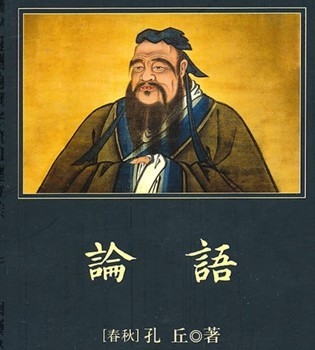
第一章 學(xué)而篇(15)
子貢曰:“貧而無(wú)諂,富而無(wú)驕,何如?”子曰:“可也。未若貧而樂(lè),富而好禮者也。”子貢曰:“《詩(shī)》云:‘如切如磋,如琢如磨。’其斯之謂與?”子曰:“賜也,始可與言詩(shī)已矣!告諸往而知來(lái)者。”
Zi Gong said, "What do you pronounce concerning the poor man who yet does not flatter, and the rich man who is not proud?" The Master replied, "They will do; but they are not equal to him, who, though poor, is yet cheerful, and to him, who, though rich, loves the rules of propriety." Zi Gong replied, "It is said in the Book of Poetry, 'As you cut and then file, as you carve and then polish.' - The meaning is the same, I apprehend, as that which you have just expressed." The Master said, "With one like Ci, I can begin to talk about the odes. I told him one point, and he knew its proper sequence."
【原文】
子貢曰:“貧而無(wú)諂①,富而無(wú)驕,何如②”?子曰:“可也,未若貧而樂(lè)③,富而好禮者也。”子貢曰:“《詩(shī)》云:‘如切如磋,如琢如磨④’。其斯之謂與⑤?”子曰:“賜也⑥,始可與言《詩(shī)》已矣,告諸往而知來(lái)者⑦。”
【今譯】
子貢說(shuō):“貧窮而不巴結(jié)奉承,富貴而不驕傲自大,怎么樣?”孔子說(shuō):“可以了。但還不如貧窮而仍然快樂(lè)而忘其貧?,富貴而仍然愛(ài)好禮義?而忘其富?的人。”子貢說(shuō):“《詩(shī)經(jīng)》上說(shuō):‘好像切削,好像刀銼,好像雕琢,好像研磨’說(shuō)的就是這個(gè)意思吧!”孔子說(shuō):“子貢啊,現(xiàn)在可以和你談?wù)摗对?shī)經(jīng)》了。因?yàn)楦嬖V你過(guò)去,你就能夠推知未來(lái)”。
【注釋】
①諂(chǎn):諂媚奉承。②何如:怎么樣。③未若:還不如。④如切如磋(cuō),如琢如磨:語(yǔ)見(jiàn)《詩(shī)經(jīng).衛(wèi)風(fēng).淇奧篇》,意思是切割骨角、象牙、玉石,然后加以細(xì)細(xì)磨制,雕琢,成為器。⑤斯:這一個(gè)。⑥賜:子貢名。⑦諸:之于,此處相當(dāng)于“之”。往:過(guò)去。來(lái):未來(lái)。
【評(píng)點(diǎn)】
本章是孔子教育弟子做人要不斷進(jìn)取,精益求精。
貧而諂,富而驕,是常人的弱點(diǎn),貧而不諂、富而不驕雖進(jìn)了一大步,但仍只是安分守已而已,是消極的有所不為。貧而樂(lè)、富而好禮,則超脫于貧富之上,無(wú)論貧富都積極地有所為。顯而易見(jiàn),對(duì)話中老師的吐詞,比弟子的見(jiàn)識(shí)高遠(yuǎn)而積極進(jìn)取。
子貢經(jīng)過(guò)孔子的啟發(fā),聯(lián)想到《詩(shī)經(jīng)•淇奧》的比興,表明他聰明過(guò)人和要求上進(jìn),受到老師的贊許。這場(chǎng)對(duì)話,為人們指出了為學(xué)、做人必須精益求精、不斷攀登的道理。











